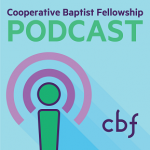By Stephen K. Reeves
A recent scientific study confirmed what many have long suspected—active, visible political advocacy by what can be called the “religious right” in the last 20 years has driven people from the church, leading to a rise in the number of those termed “nones” or “dones.” Decades before, the anti-war and pro-civil rights activism by more liberal, mainline Protestant pastors coincided with a loss of membership in many of those churches.
At the same time, much ink has been spilled about millennials disengaging from church. Many of them have concluded that the Christian faith has little or nothing to say about the most critical issues of our day. If their church has nothing to say about our current hyper-political climate, the plight of their black, immigrant or gay friends or the prevalence of gun violence in our culture, how relevant is that faith to their lives? Those that work with young people closely know they are actively engaged in and concerned about social justice.
Many pastors and leaders are feeling their way through this tension. Add to this a painful history with the Southern Baptist Convention and the struggle is even more complex. Many faithful members of the Cooperative Baptist Fellowship were eager to leave behind a convention where annual meeting resolutions looked like a party platform and felt like marching orders from the “religious right.”
The reaction by some of those who ended up outside the SBC was to avoid anything that could be considered political at all costs. As Baptists who maintain a love of religious liberty for all, it was convenient for some to fall back on a narrow interpretation of the “separation of church and state,” falsely claiming that it precludes consideration of political issues in the church.
In our new political and cultural moment, that response seems inadequate, if not impotent. Doesn’t following Christ in our day say something about how to be a Christian in the public square and an actively engaged citizen?
While church members need not come to the same conclusions, banishing the witness of Christ from the political sphere is a dangerous limitation. The faithful should be encouraged to thoughtfully apply Christian principles to their whole lives—even when they step into the voting booth or march at the capitol.
Cooperative Baptists need not sell out to a political party nor stick their heads in the sand. We need to engage in and model a better way—an ampersand advocacy. We need to continue our acts of charity & work for justice. We need to support our Global Missions efforts & engage in local advocacy. We must consider how our faith informs political issues & uphold the institutional separation of church and state.
The way forward is to root the long-term advocacy priorities of our congregations and of CBF in the mission work of the local church and that of our field personnel. Rather than taking our cues from cable news commentators, let’s move closer to our neighbors. Rather than aligning our priorities with the current president, or any president, let’s consider how the voices of those within the church might better the lives of those whom we encounter in our missions and ministry. A congregation oriented outward and engaged in the community will find no shortage of issues to be addressed or needed changes to systems that would make their city or town a more just place for all.
Becoming a soldier in the culture war is counter-productive and offers little good news to our country. Remaking Jesus into a cheerleader for all of our “correct” political positions leaves no room for faith at all. If your “flag decal won’t get you into heaven,” neither will voting correctly, whether from the left or the right. Turning inward out of fear preaches a truncated Gospel that ignores the pain and needs of so many and lacks hope for our times. Instead, let us turn outward in love and look for a new avenue of service by speaking up for and alongside our neighbors.
Let’s help make sure their voices are heard and their problems addressed. Surely loving them as we love ourselves means making their concerns our own. We will be surprised at who takes notice and, one day, we might just find that advocacy, our public witness, looks a lot more like evangelism to a divided and selfish world.
Stephen K. Reeves serves as associate coordinator of partnerships and advocacy for the Cooperative Baptist Fellowship. Learn more about CBF Advocacy at www.cbf.net/advocacy










